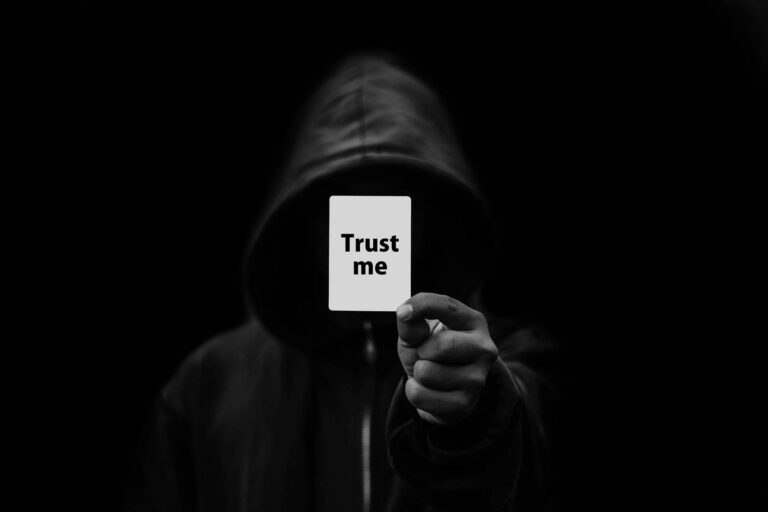*First names followed by an asterisk have been changed.
“What I’m feeling isn’t even anger anymore. Despite the fact, I’m hyper feminist. But the level of guilt is enormous. I used to want to fight against it. But this, this was too traumatic. It completely destroyed me.”
Myriam*, in her twenties, has been living in Paris for several years. The day before she entered her third year of her undergraduate degree, she was drugged without her knowledge, probably with GHB, in a bar in the 18th district of the capital. She was then raped, as evidenced by the surveillance camera footage on site. “I meant to go out with a girl-friend. Except, she waited until the last moment to tell me that she wouldn’t be coming. I often go out by myself, so I thought it wasn’t that big of a deal. I had a cocktail. After that, I don’t really remember.”
The student woke up the next day in her bed without a clue of how she had got home. The only thing she could remember is that some clients bought her a few drinks, some of them behaved badly, and that she was infuriated. “Though now that I think about it, I didn’t have a hangover. Which doesn’t make any sense by the way, because I get them very easily. I just had a headache and some dizziness.” It was only in analyzing the situation objectively that she understood that she was in denial: Two years earlier, she had been drugged with GHB at a party, and the symptoms were the same.
I feel quite powerless. I am convinced that some staff members are complicit in these kinds of acts or witness them. And it drives me crazy!
The “rapist’s drug”
GHB, also known as the “date-rape drug”, is a synthetic molecule usually administered as a tranquiliser. In cases of drug-facilitated sexual assault, this is the drug most often used because it causes blackouts lasting several hours. It is also difficult to detect since its traces disappear from the body in only a few hours. Aside from that, a hair test must be done, which can only be carried out in the context of a judicial investigation. In 2019, the National Drug Agency counted 574 chemical submission cases, a 16.7 percent increase from the previous year.
At that moment, Myriam was in a daze. She then saw a hidden number appear on her phone and answered the call. It was a security guard from the bar where she spent the night out. “What I’m about to tell you is going to be difficult to hear, ” he finally let out with a sigh. Myriam blames herself right off the bat. What if she’d had too much to drink and made a complete mess of things? She was already preparing to apologize profusely. That was not the purpose of the phone call, however. “We put surveillance cameras in the toilets. It’s totally illegal, but we did it for safety reasons. In the footage, a lot of men are hanging around you, one in particular who was chatting with you a lot at the bar. You can be seen performing oral sex on this man.”
The revelation was raw and brutal. The security guard did not disclose, nevertheless, his identity for fear of being fired. He also made clear to Myriam that if ever she decides to turn against the bar, he will not testify in her favor. Everything is spins in her head: Sexual Assault Disclosure Hell. She’d have to retake PEP (Post Exposure Prophylaxis medicine, a post-exposure HIV treatment) like she did two years ago. She’d have to hide the situation from her conservative parents, who would mostly likely cut her off if they ever found out. “Plus, I feel guilty because it was after having drunk alcohol, even though I’d told everyone I was quitting.” Today, Myriam hardly drinks anymore and goes out very little: the risk is too great. Now, she lives with this heavy secret which she has only shared with her boyfriend.
“I was white as a ghost, I could barely even speak…”
The Belgian Maïté Meeus launched the Instagram page @balance_ton_bar last October to fight against customer and staff impunity in party locations. Testimonials poured in very quickly on Twitter and Instagram, and @balance_ton_bar pages assigned to many French-speaking cities were born. In the aftermath, the hashtag #BalanceTonBar (“#SnitchOnYourBar “) went viral. Romane, 21 years old, was one of the first to see her testimony buzz on Twitter. Having gone to a nightclub in Deauville on Halloween night, she unwittingly took GHB. Accompanied by her friends, she entered her habitual nightclub around midnight. “I put my glass on the table to go dancing. Fifteen minutes later, I got really dizzy, I could actually feel myself swaying. Then, blank. I don’t have a single memory of what happened next.” It was her friends who ended up setting the scene for her: The student, who was not even very drunk, collapsed abruptly in the middle of the dance floor. “They didn’t recognize me, I was as white as a ghost and I could barely even speak.”
Her friends helped her get out. Waiting on a bench, Romane fell on the ground and bruised her lip. When the firemen arrived, they didn’t hide their annoyance in front of what they considered to be a young completely drunk girl. “Anyway, either I had been spiked or I was in an alcoholic coma, so, it was still their job regardless,” Romane rants. “Long story short, they just took care of my lip by taking me to the emergency room. I did not have any drug tests or blood alcohol level tests done.”
The next day, the student went to the police station with her parents to have some tests done. The reception she received left her with a bitter memory. “They told me I was tired, that I most likely didn’t realize I had been drinking. Then I was taken to the gendarmerie, where I was asked questions focused on the rape component.” When Romane, who had stayed the entire evening with her friends, asked what the point of this interrogation was, the answer was clear: “You are of age, so either you have been molested [and she can file a complaint], or you are under the influence of alcohol. But, in that case we won’t be able to do an investigation.”
I received a lot of reproaches. “How can you be sure? You had too much to drink.” My statements were questioned, and they even managed to make me doubt myself. Although deep down, I know I was drugged
Filing a complaint, an uphill battle
In order to get any tests, you have to file a complaint. And this is an uphill battlethe path of the fighter: almost no victims dare to take the step. “When you file a complaint because you feel you have been sexually assaulted via drug abuse, you need to see a medical examiner. The thing is that the police rarely suggest going to see a forensic doctor,” expresses Alice*, the administrator of the @balance_ton_bar_grenoble account, with regret. “It’s a double penalty. Plus, as soon as the victims decide to file a complaint, which is rare, it gets complicated, because the people around them discourage them. And then there are refusals of complaints. And if they are taken, they are very quickly closed without action anyway.”
Like Romane, Louise* was not able to do any tests. For her, it was simply impossible to get through her apartment door for several days. “It was too hard. I felt unsafe.” This student also took GHB without her knowledge in a bar in the capital. But the hardest thing for her was the constant guilt afterwards. “I got a lot of flak. ‘How can you be sure? You had too much to drink.’ My claims were being challenged, people even managed to make me doubt them. Even though I know deep down that I was drugged.”
At the time of the event, she was 23 years old. Before going home to her parents for the summer, she decided to go celebrate her graduation with friends. “I hadn’t had a drink at the bar, I had just been drinking at home before I left. I was dancing when I got the hiccups. I went to ask for a glass of water. As I was being served the glass of water – it was sitting on the counter – a boy came up and spoke to me. Then another guy came up to my right, he joined the conversation. I tried to get away” Louise drank her glass of water and headed for the bathroom. “It was when I sat down that I suddenly couldn’t feel my fingers. I felt very weak. I felt like I was losing my way.”
The rest, she does not remember. “Apparently, I started crying. My buddies couldn’t understand what I was saying. I wasn’t articulating well. I was just saying I wanted to go home to my cat.” One of her friends finally drove her home. “The next day when I woke up, I was not well. I felt only a few flashes of anxiety before losing control of my body.” It took a while before Louise was able to go to a bar again. And she can’t imagine what would have happened with the two men at the counter if her friends hadn’t been nearby.
Help us tell the world to you !
Frictions is launching its club : by supporting Frictions, you’ll be supporting a community of authors and journalists who tell the world through intimate stories!

“The buzz is over, but it’s a topic that will always rattle people up”
When asked if #BalanceTonBar could spark a revolution, she was skeptical. Not against the movement, which was “essential” according to her, but against the impunity enjoyed by the clients and professionals of the night world. “We’re not taken seriously enough. Maybe this is just the beginning and it will change things, but I doubt it. Myriam echoes the same sentiment. She doesn’t even feel rage anymore. Just sadness and a deep sense of trauma. “I feel pretty helpless. I am sure that staff are complicit in these types of acts or are witnesses to it. And it drives me crazy! I see that they sell condoms for drinks, but if there is a problem to be solved in this male-dominated space, it is the objectification of women. We are being dehumanized.”
For Éléonore, co-founder of the page @balance_ton_bar_liege, it’s a political and economic problem. “Many bistro representatives know about it, but they don’t give a shit! Or they feel they are already doing what’s necessary on their end, and that this is an issue that has always existed and will always exist. Don’t be fooled. It’s the guys that need to be educated, we need to change mentalities, fight against the patriarchy, against liberalism.” For Alice, from @balance_ton_bar_grenoble, there’s a need to raise awareness “If #BalanceTonBar took such a magnitude at a time, it’s because it’s important. It’s not something that shocks for a day, it shocks all the time. The buzz is over, but it’s a topic that will always rattle people up, and so much the better.”
Even so, the situation remains quite bleak concerning associations for service professionals. When contacted, the National Group of Independent Hotels and Restaurants, the Association of French Bartenders, the Chambre Syndicale des Lieux Musicaux et Festifs and the Chambre Syndicale des Cabarets Artistiques et Discothèques de France did not respond to requests for comment.









